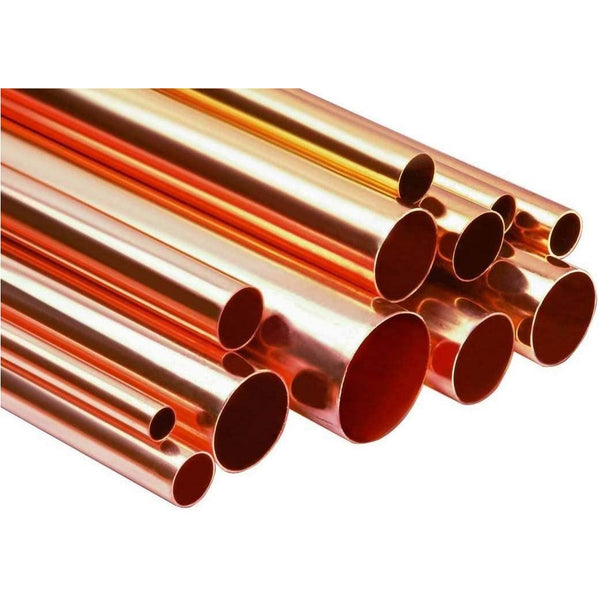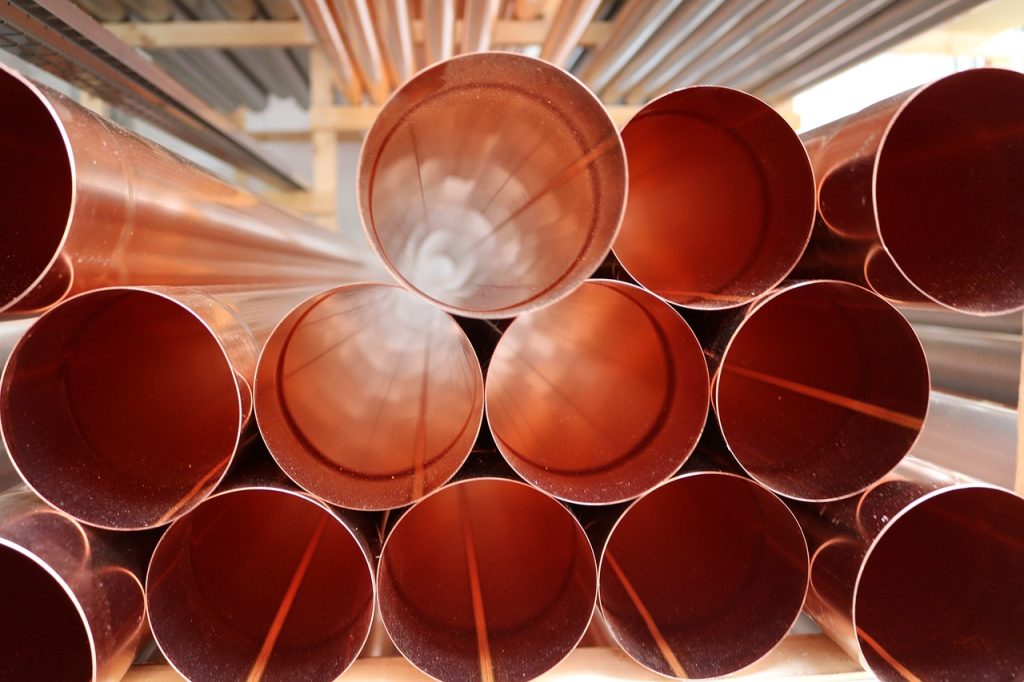Discover the Perks of Using Premium Copper Products for Home and Market
Discover the Perks of Using Premium Copper Products for Home and Market
Blog Article
Just How Copper Products Contribute to Sustainable Practices in Different Fields
In eco-friendly energy systems, for instance, copper improves the capability of solar and wind innovations, while its application in construction decreases waste through longevity. As industries look for to take on even more lasting techniques, the function of copper might prove essential in attaining environmental objectives.
Copper in Renewable Energy
Copper plays a vital role in the innovation of renewable energy technologies, functioning as an important conductor in different applications. Its remarkable electrical conductivity and resistance to rust make it a suitable product for electrical circuitry, which is crucial in solar panels, wind turbines, and power storage systems. In solar photovoltaic systems, copper is used in the interconnections and circuitry, allowing reliable energy conversion from sunshine to power.
In wind energy, copper is important to the generators and transformers that transform kinetic power into electric energy, ensuring optimum performance and dependability. The demand for electric lorries (EVs) is raising, with copper being a crucial element in batteries, motors, and charging facilities. The shift to EVs dramatically enhances the demand for copper, as these lorries typically utilize four times extra copper than traditional interior burning engine lorries.
As the globe looks for to mitigate environment adjustment and transition to lasting energy sources, copper's role ends up being progressively critical. The material not just enhances the effectiveness and resilience of renewable resource systems however likewise sustains the wider goal of reducing greenhouse gas exhausts and advertising a sustainable future.
Eco-Friendly Building And Construction Products
Recently, there has actually been a noteworthy shift towards the adoption of green construction materials in action to growing environmental worries. This adjustment is motivated by the need for sustainable alternatives that lessen ecological impacts while keeping structural stability and aesthetic appeal.
Copper, known for its sturdiness and recyclability, has actually become a key gamer in this industry. It can be made use of in roofing, plumbing, and electrical systems, contributing to power performance and reducing waste. Copper's long life indicates fewer substitutes in time, more enhancing its sustainability account.
Furthermore, products such as bamboo, reclaimed wood, and recycled steel are gaining popularity. These alternatives not just offer reduced environmental effect but also advertise source preservation. As constructing codes significantly stress sustainability, designers and home builders are incorporating these products right into their tasks, promoting development in layout.
The increasing adoption of green building products mirrors a more comprehensive dedication to sustainability in the constructed environment. By prioritizing these products, the building industry can significantly reduce its carbon footprint, align with regulatory requirements, and support a healthier ecosystem for future generations. This trend notes a crucial action in the direction of a much more lasting future in building.
Copper's Duty in Medical care
Recent studies have actually highlighted the significant function of copper in medical care setups, especially due to its antimicrobial buildings. Copper surfaces have actually been shown to decrease the presence of pathogens, including viruses and microorganisms, by up to 99.9% within a short duration. This impressive efficacy makes copper an invaluable product for high-touch surfaces in hospitals, such as doorknobs, bed rails, and IV posts, consequently adding to boosted infection control procedures.
In addition to its straight antimicrobial effects, copper likewise plays a role in the broader context of health center sustainability (Copper Products). By including copper into clinical equipment and furnishings, healthcare centers can decrease the incidence of healthcare-associated infections (HAIs), which not just boosts client results however additionally decreases the prices associated with extended healthcare facility keeps and additional treatments
In addition, copper's toughness and recyclability line up with lasting practices, permitting for liable source administration. As health care systems significantly prioritize both client security and environmental stewardship, the combination of copper items is becoming a lot more common. This dual advantage underscores copper's crucial contribution to a healthier, much safer, and extra lasting medical care environment.
Sustainability in Transportation

In addition, copper's toughness official source and corrosion resistance add to the longevity of transport infrastructure (Copper Products). In rail systems, for instance, copper parts improve the reliability and performance of signaling and power systems, crucial for reducing hold-ups and power intake. Additionally, copper's function in renewable resource systems, such as solar and wind, supports sustainable transport solutions by providing clean energy for electric transit alternatives
Investments in copper modern technology not just foster sustainability but likewise stimulate economic growth and job production in environment-friendly sectors. As industries strive to meet rigid environmental policies, the application of copper products in transport becomes a crucial technique in accomplishing sustainability goals and advertising a cleaner, a lot more efficient future.
Copper and Circular Economic Situation
As the globe significantly embraces sustainability, the role of copper in the round economic climate comes to be ever before more significant. Copper's inherent homes-- such as its conductivity, recyclability, and longevity-- placement it as a key material in a resource-efficient economy. The round economy intends to lessen waste investigate this site and maximize resource use through recycling and reusing products, and copper master this respect.
The metal can be recycled forever without loss of top quality, making it an ideal prospect for lasting methods across different fields, consisting of construction, electronic devices, and renewable resource. By reprocessing and recovering copper from end-of-life items, markets can dramatically decrease the demand for virgin products, consequently reducing ecological impacts connected with mining and handling.
In addition, the assimilation of copper into circular economy structures not only saves sources yet likewise cultivates development. Companies that focus on copper recycling contribute to a more lasting supply chain, improving their competition while aligning with regulative needs and customer choices for ecologically liable products.
Final Thought
To conclude, copper products dramatically contribute to sustainable techniques throughout several markets. Their important function in improving renewable power technologies, promoting eco-friendly building and construction materials, supporting infection control in health care, helping with sustainable transportation, and embodying the principles of a circular economic climate highlights the adaptability and importance of copper. By incorporating copper right into different applications, markets can attain higher performance, reduce ecological impact, and line up with global sustainability goals, ultimately fostering a more sustainable future.

Copper's outstanding from this source conductivity makes it a recommended material in electrical automobile (EV) systems, improving power effectiveness and efficiency. Additionally, copper's function in sustainable power systems, such as solar and wind, supports sustainable transportation options by supplying tidy energy for electrical transit alternatives.
Their necessary function in boosting renewable energy technologies, advertising environmentally friendly building and construction materials, sustaining infection control in health care, promoting lasting transport, and personifying the concepts of a circular economic climate emphasizes the flexibility and significance of copper.
Report this page